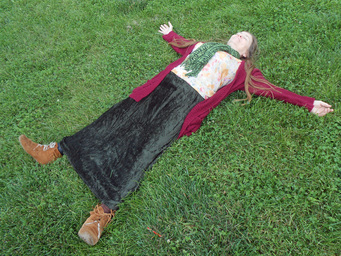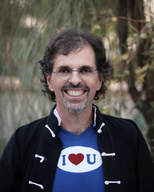 Repose is part of a societal shift that has been ongoing for several decades and that seems to be intensifying. The shift is from a Doing orientation to a Being orientation. The Doing orientation focuses on accomplishment, money, status, and various forms of worldly success. Even in leisure, people with a Doing orientation are looking to achieve something, whether it be winning a golf game, training for a triathlon, accumulating collectibles, or the attainment of some other goal. The Being orientation focuses on immediate experience, happiness, love, and the full enjoyment of the present moment. During times of leisure, people with a Being orientation will do what feels good, whether it be lying on a beach, playing with their dogs, or going for a long walk in nature. The two orientations represent very different forms of consciousness. The Doing orientation corresponds to an active mode of consciousness that is dominated by goals, expectations, strategies and logic, whereas the Being orientation engages a receptive mode of consciousness that focuses more on images, sensations, and intuition than on logic. One of the major differences between these two modes is that the active mode revolves around the self whereas the receptive mode is self-transcendent. Evidence of this Being Revolution can be seen everywhere. In 2010, Time magazine identified the 10 major trends that would shape the next decade. One of these is the evolution of a "dropout economy", characterized by a move from traditional education and jobs to grass-roots economies, home schooling, "cage-free families" that abandon suburbia for life on the open road, voluntary simplicity, and other alternatives to the economic rat race. In the 2012 Presidential race, Mitt Romney referred to the "47 percent" who are not contributing federal taxes but rather are receiving some type of benefits (including Medicare, Medicaid, and Social Security) from the government. Part of this trend which Romney may or may not have reported accurately is due to the aging of the population. But there is also the very real movement away from traditional careers and towards pursuits that are more fulfilling. Another trend reported by Time is the "twilight of the elites," meaning the steady decline of the three major institutions that have dominated public life: government, religion, and corporations. Growing numbers of people have withdrawn their trust and support of these institutions because of a divergence in values. Individuals with a Being orientation are clashing with institutions that promote a Doing orientation. This incompatibility is showing up in a number of ways: growing mistrust, outright rejection of certain institutions such as the Catholic Church, and massive uprisings such as the ones currently being reported in China and Ferguson, MO. Even in academia, there is plenty of evidence of this revolution taking hold. Two decades ago, topics like meditation and self-transcendence would not be touched by mainstream, peer-reviewed journals. Today, the number of articles addressing these and related topics is growing rapidly. The field of positive psychology has grown rapidly in the past decade, with its focus on Being issues such as happiness, loving relationships, the search for meaning, engagement in the present moment, and psychological well-being. Those who are doubtful that such a revolution is taking place cite the "centers of chaos" that we all hear about in the daily news. The conflict we are seeing in the world is increasingly taking the form of popular uprisings against institutions that are oppressive, unjust, and out of touch with the genuine concerns and welfare of the people. Whether or not these uprisings give rise to constructive and meaningful change in the short-term, what matters is that they are an expression of a growing dissatisfaction with institutional values. Ultimately, it boils down to a demand for more Being values in a world that has traditionally been dominated by those who embrace Doing values. Our friend and colleague, Dr. Rubin Naiman, pointed out in a recent conversation that his enthusiastic support of Repose stems from the fact that--like sleep--it is not a means to an end. We engage in Repose for its own sake; it has no agenda other than the fact that we feel good when we are in Repose. Those good feelings carry over to the rest of our lives, and there is no question this carryover can be seen in terms of improvements to physical and mental health. But the main reason we embrace Repose is that it draws us fully into the present moment and the rich experience of the here and now.
0 Comments
Leave a Reply. |
I want to hear from you! Please share your questions and comments. And sign up for my newsletter, where I will pass along the insights, ideas, and inspiration that come my way.
Contact me:Archives
November 2023
|

 RSS Feed
RSS Feed
